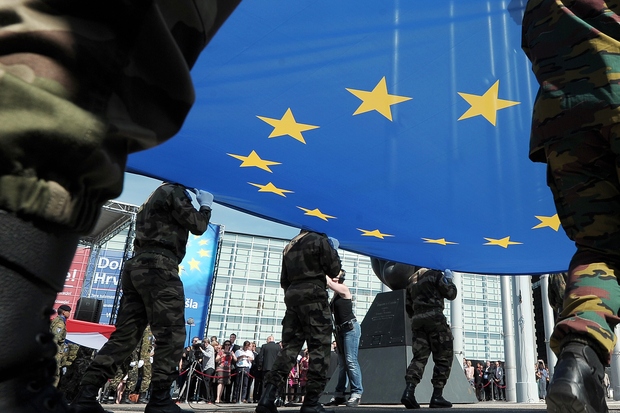Brussels – The new Dutch government, led by the far-right Party for Freedom (PvP), is turning up the heat on immigration. In a letter to the European Commission, Asylum Minister Marjolein Faber informed Brussels that “in the event of a change in the Treaties,” the Netherlands “will ask for an opt-out from the European acquis on asylum and migration.” The Dutch government will request an opt-out from the European acquis on asylum and migration. In essence, it will seek an exemption from the rules under the EU Pact on Migration and Asylum.
“This government aims to dramatically reduce the volume of immigration to the Netherlands to continue to fulfil our constitutional duties—to provide public housing, health care, and education,” Faber began in the letter. To achieve this, Amsterdam is prepared to ask for a waiver from EU rules, so much for the common “responsibility and solidarity” on which the new policy of the 27 is founded in migration and asylum matters.
Geert Wilders, leader of the GOP—of which, by the way, the minister responsible for migration and asylum is also a member— immediately rejoiced: “Faber makes history and informs the European Commission about the willingness of the Dutch to opt out of immigration!” he wrote in a post on X. But beyond the very clear political message, with which the coalition led by Prime Minister Dick Schoof demonstrates to its voters the firmness it promised against immigrants, the possibility of an opt-out remains very far away.
Equally clear is the response from Brussels, entrusted to European Commission spokeswoman Anitta Hipper: “We do not expect any changes in the immediate future to EU asylum and migration rules, which will continue to be binding on the Netherlands.” To trigger a change in the Treaties, the procedure of ordinary revision involves a series of institutional steps: the convening of a convention composed of representatives of national parliaments, heads of state or government of member states, the Parliament and the Commission, and finally, the convening of a conference of representatives of the governments of the member states of the Union, to adopt treaty amendments by common agreement.
Currently, only three member states benefit from derogations from treaty duties. Denmark on defence missions and cooperation on security and justice, Ireland on Schengen and in criminal and judicial matters, and Poland on the binding application of the Charter of Fundamental Rights of the European Union.
The process is burdensome, and of some length, which the Dutch government itself is aware of, and in its letter to EU Commissioner for Home Affairs, Ylva Johansson makes clear: “As long as the Netherlands does not have such an opt-out, we consider the swift implementation of the European Pact on Migration and Asylum essential for increasing European control over migration and limiting the influx of migrants into the Netherlands. We will, therefore, continue to prioritize the implementation of the Pact.”
English version by the Translation Service of WithubFaber writes history and informs European Commission of Dutch desire to opt-out of migration! https://t.co/aOVTrJJq1I
– Geert Wilders (@geertwilderspvv) September 18, 2024











